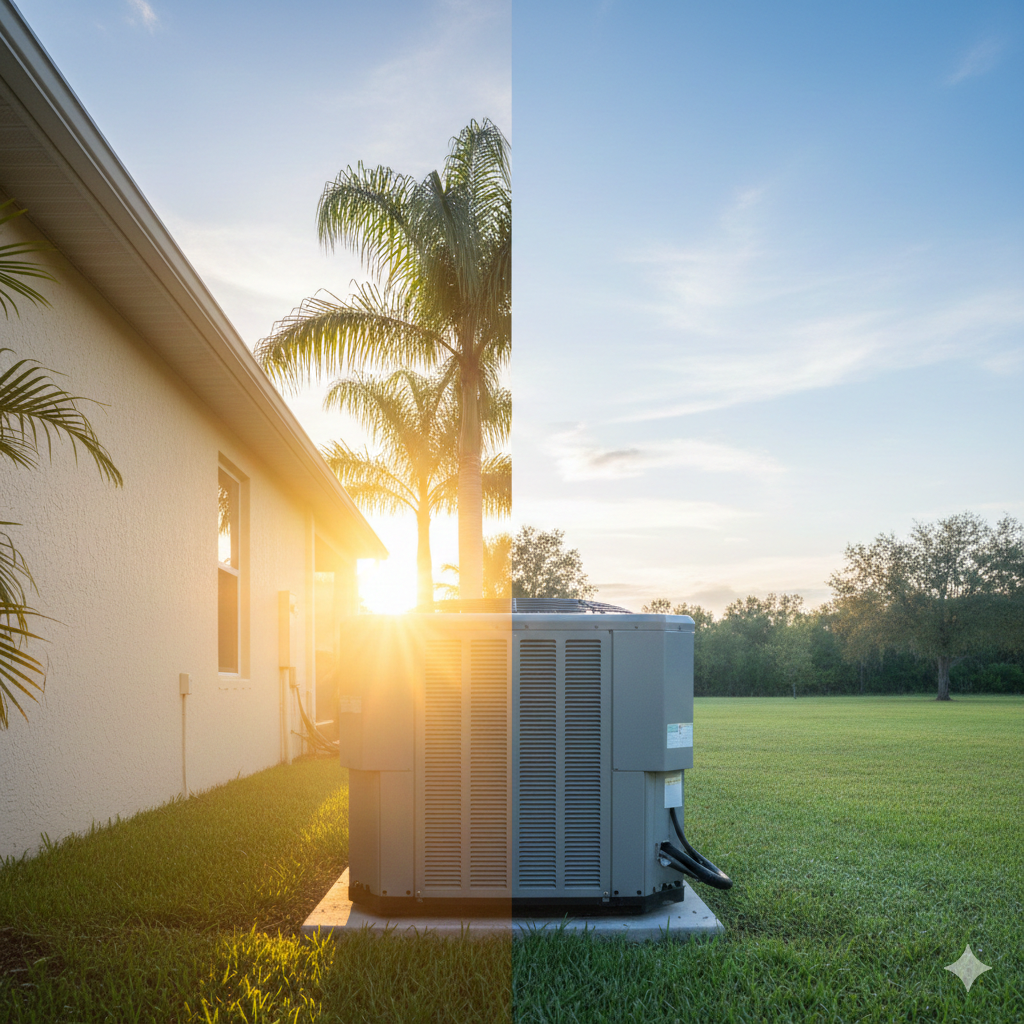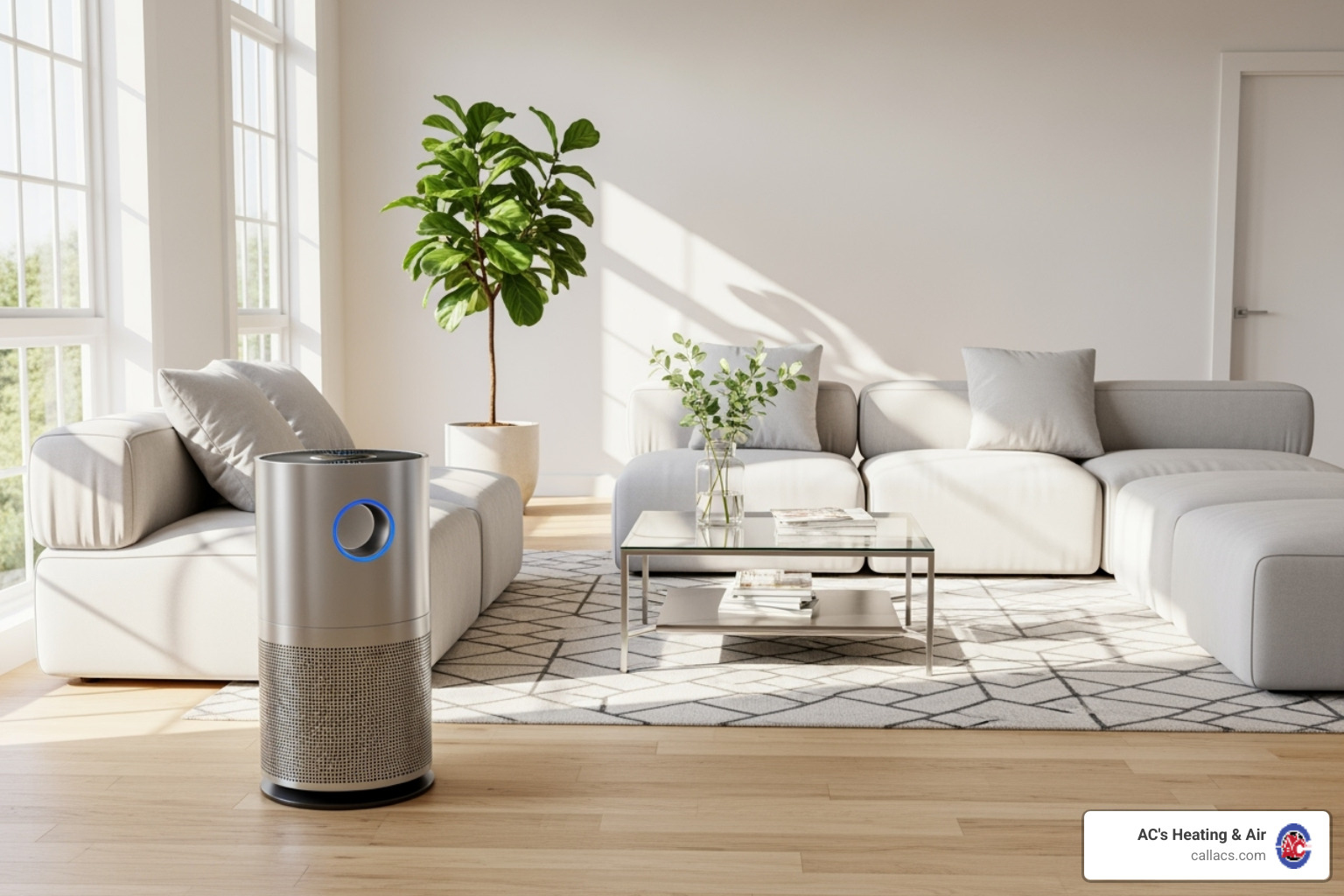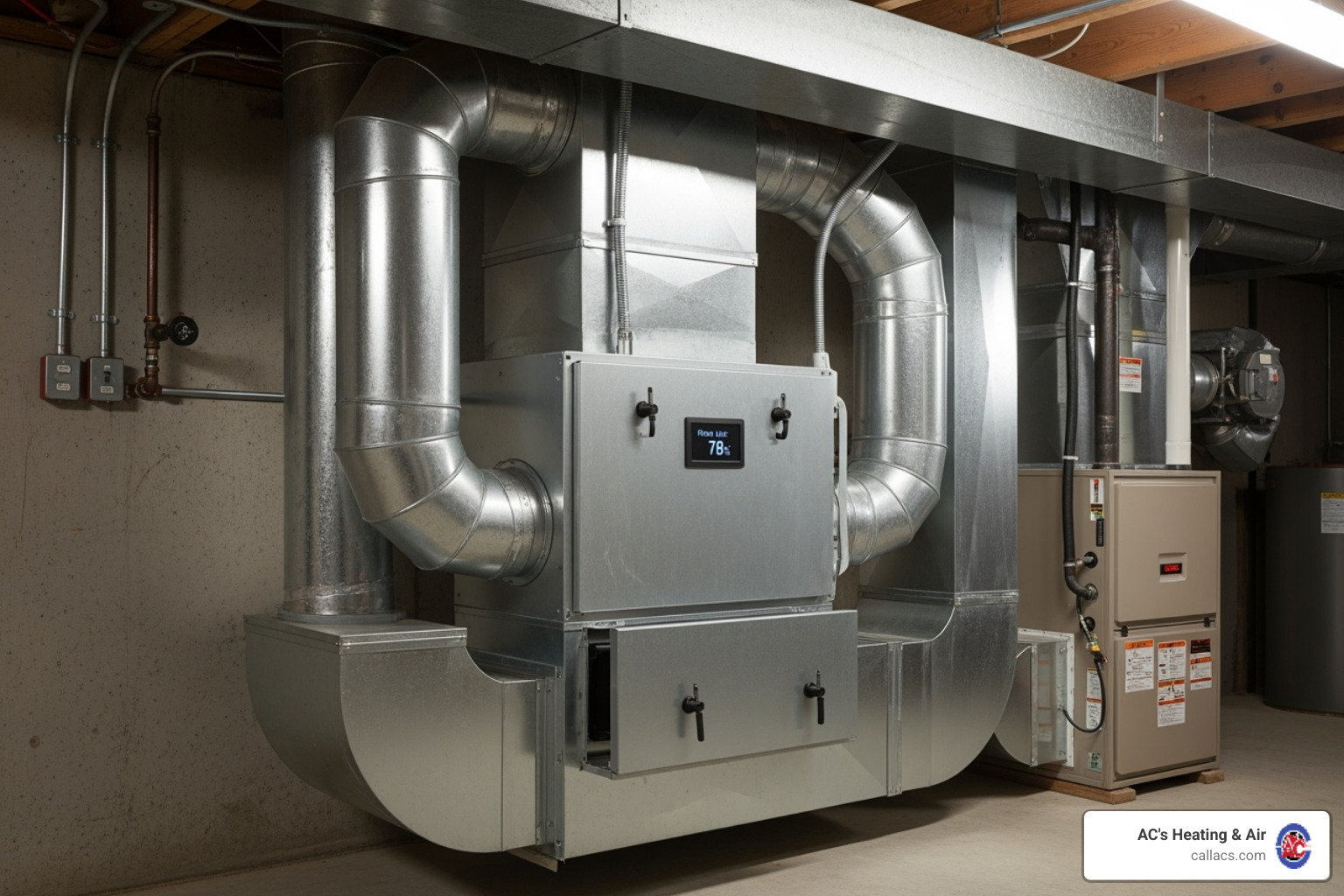Commercial Air Conditioning Repair Tips in Orlando

Tips for Commercial Air Conditioning Repair in Orlando, FL
Commercial air conditioning repair in Orlando is crucial for maintaining a comfortable and functional work environment. Broken or inefficient AC units can be costly and disruptive for businesses. Here are some vital points to quickly address your concerns:
- Evaluate unusual noises: Strange sounds can indicate mechanical issues.
- Check for poor airflow: Blocked vents or faulty fans can hinder circulation.
- Monitor temperatures: Inconsistent cooling might mean your system needs attention.
- Watch energy bills: A sudden spike often signals inefficiency.
- Inspect for frequent cycling: This could indicate thermostat or system problems.
For a successful business in Orlando’s hot climate, a reliable HVAC system is essential. Regular maintenance and prompt repairs can save you thousands in lost productivity and repair costs. Stay tuned for expert tips to keep your commercial AC running smoothly!
Understanding Commercial Air Conditioning Systems
Commercial air conditioning systems are complex and come in various types to suit different needs. Knowing the basics can help you identify issues and communicate effectively with your HVAC technician.
Chillers
Chillers are used to cool large buildings by circulating chilled water through air handlers or fan-coil units. They are often seen in hotels, hospitals, and office buildings. Chillers can be air-cooled or water-cooled, and they are ideal for environments requiring precise temperature control.
Rooftop Units
Rooftop units (RTUs) are self-contained systems installed on the roof of commercial buildings. They are popular for their ease of installation and maintenance. RTUs can handle both heating and cooling, making them versatile for various commercial applications.
Split Systems
Split systems consist of an outdoor unit and an indoor unit connected by refrigerant lines. These systems are efficient and cost-effective, suitable for smaller commercial spaces like retail stores and small offices. They offer flexibility in installation and can be tailored to specific areas of a building.
Water Towers
Water towers, also known as cooling towers, are used to dissipate heat from chillers or industrial processes. They work by evaporating water to remove heat, making them essential for large-scale cooling needs. Water towers are a common sight in industrial facilities and large commercial buildings.
Evaporative Coolers
Evaporative coolers use the process of evaporation to cool air. They are energy-efficient and work best in dry climates. While not as common in Orlando's humid environment, they can still be useful in specific industrial applications.
Thermostats
Thermostats are the control centers of your HVAC system. Modern thermostats offer advanced features like programmable settings, remote access, and energy usage reports. Properly functioning thermostats are crucial for maintaining a comfortable and efficient environment.
Safety Controls
Safety controls are built into commercial HVAC systems to prevent accidents and damage. These include pressure relief valves, temperature sensors, and emergency shut-off switches. Regular checks on safety controls can prevent costly repairs and ensure a safe working environment.
Understanding these components can help you make informed decisions about your commercial air conditioning repair in Orlando. Stay tuned for more expert tips on troubleshooting and maintaining your HVAC system!
Signs Your Commercial AC Needs Repair
Knowing when your commercial AC needs repair can save you time, money, and prevent bigger issues down the line. Here are some key signs to watch for:
Unusual Noises
If your commercial AC system is making strange sounds like grinding, squealing, or banging, it’s a red flag. These noises often indicate mechanical problems such as loose parts or failing components. Ignoring these can lead to more severe damage and costly repairs.
Poor Airflow
Inadequate airflow is another sign that your AC unit needs attention. If some areas of your building are cooler than others or if you notice weak airflow from the vents, it could mean your system’s compressor is failing or there’s a blockage in the ductwork.
Inconsistent Temperatures
If your commercial space has hot and cold spots, it might be due to an issue with your thermostat or an imbalanced system. Inconsistent temperatures can make your work environment uncomfortable and may signal that your HVAC system needs a tune-up.
High Energy Bills
A sudden spike in your energy bills can be a sign that your commercial AC system is not running efficiently. Dirty coils, clogged filters, or failing parts can cause your system to work harder than necessary, leading to increased energy consumption.
Frequent Cycling
If your AC unit turns on and off frequently, it’s called short cycling. This can be caused by several issues, including an oversized unit, refrigerant leaks, or electrical problems. Frequent cycling not only wastes energy but also puts extra strain on your system.
Recognizing these signs early can help you avoid more significant problems and ensure that your commercial air conditioning system runs smoothly. Stay tuned for expert tips on basic troubleshooting and when to call in the pros for commercial air conditioning repair in Orlando.
How to Perform Basic Troubleshooting
If your commercial air conditioning system isn't working correctly, there are a few basic troubleshooting steps you can take before calling in a professional for commercial air conditioning repair in Orlando.
Check Thermostat Settings
The first thing to do is check your thermostat settings. Ensure it is set to "cool" and the temperature is set lower than the current room temperature. Sometimes, issues arise from simple human error, like someone accidentally setting the thermostat to "heat" or "off."
Inspect Air Filters
Dirty or clogged air filters can severely impact your AC's efficiency and airflow. Check the air filters and replace them if they are dirty. It's a simple task that can prevent a lot of issues down the line. Ideally, air filters should be replaced every 1-3 months, depending on usage.
Examine Circuit Breakers
If your AC unit won't turn on, the problem might be an electrical issue. Head to your electrical panel and check if any circuit breakers have tripped. If you find a tripped breaker, reset it. If it trips again, this could indicate a more serious electrical problem that requires professional attention.
Clean Condenser Coils
Condenser coils can get dirty over time, especially in commercial settings where dust and debris are more prevalent. Dirty coils force the system to work harder, leading to inefficiency and potential breakdowns. Clean the condenser coils using a soft brush or a vacuum cleaner. Be careful not to damage the fins or other delicate components.
Taking these basic troubleshooting steps can often resolve minor issues and save you the cost and downtime of a service call. However, if these steps don't solve the problem, it's time to call in the experts for commercial air conditioning repair in Orlando.
Professional Commercial Air Conditioning Repair in Orlando
When basic troubleshooting isn’t enough, you need professional help for commercial air conditioning repair in Orlando. Here’s what you should look for in a top-notch service provider.
NATE-Certified Technicians
NATE (North American Technician Excellence) certification is the gold standard in the HVAC industry. Technicians with this certification have proven their skills and knowledge through rigorous testing. At AC's Heating & Air, our NATE-certified technicians are well-equipped to handle any commercial AC issue, ensuring your system is in expert hands.
24-Hour Coverage
AC breakdowns don’t follow a 9-to-5 schedule. They often happen at the worst possible times. That’s why we offer 24-hour coverage, even on weekends and holidays. Whether it’s the middle of the night or a scorching summer afternoon, our team is ready to respond to your emergency needs.
Quality Replacement Parts
Using subpar parts can lead to frequent breakdowns and inefficiency. We use only quality replacement parts to ensure your system runs smoothly and lasts longer. This commitment to quality helps prevent future issues and keeps your commercial space comfortable year-round.
Cutting-Edge Diagnostic Equipment
Diagnosing an HVAC issue accurately is crucial for effective repairs. Our technicians use cutting-edge diagnostic equipment to pinpoint problems quickly and accurately. This technology allows us to provide precise solutions, saving you time and money.
By choosing AC's Heating & Air, you’re ensuring that your commercial air conditioning system receives the best care possible. Our combination of skilled technicians, 24-hour availability, high-quality parts, and advanced diagnostic tools makes us the go-to choice for commercial air conditioning repair in Orlando.
Next, let’s explore the importance of regular maintenance for your commercial AC system.
Importance of Regular Maintenance
Regular maintenance is crucial for keeping your commercial air conditioning system running smoothly. Neglecting routine care can lead to efficiency loss, unexpected breakdowns, and costly repairs. Here’s why you should prioritize regular maintenance:
Routine Tune-Ups
Routine tune-ups help ensure that your system operates at peak efficiency. During a tune-up, technicians will:
- Check and adjust thermostat settings
- Inspect and tighten electrical connections
- Lubricate moving parts
- Verify system controls
These steps not only improve performance but also extend the lifespan of your equipment.
Efficiency Loss
Without regular maintenance, your AC system can lose about 5% of its efficiency each year. Dirty filters, clogged coils, and worn-out parts force the system to work harder, consuming more energy. This not only increases your energy bills but also puts unnecessary strain on the system, leading to premature wear and tear.
Potential Problems
Regular inspections help identify potential problems before they become major issues. For example, a small refrigerant leak might not seem significant, but it can lead to compressor failure if left unchecked. Catching these issues early can save you from expensive repairs and downtime.
Cleaning
Clean components are essential for efficient operation. Dirty coils, for instance, can reduce the system’s ability to cool your space. Regular cleaning of evaporator and condenser coils ensures that your system can transfer heat effectively, maintaining a comfortable environment for your business.
Inspection
A thorough inspection during maintenance checks all system components, including:
- Air filters
- Refrigerant levels
- Electrical connections
- Safety controls
This comprehensive approach helps ensure that every part of your system is in good working order, reducing the likelihood of unexpected breakdowns.
Investing in regular maintenance not only keeps your system running efficiently but also helps you avoid costly repairs and downtime. Up next, we’ll answer some frequently asked questions about commercial air conditioning repair in Orlando.
Frequently Asked Questions about Commercial Air Conditioning Repair in Orlando
What is the life expectancy of a commercial AC unit?
The average life expectancy of a commercial AC unit is 15-20 years. However, this can vary based on several factors, including the quality of the installation, the frequency of maintenance, and the operational environment. Regular maintenance plays a crucial role in extending the lifespan of your unit. Neglecting maintenance can lead to efficiency loss and more frequent repairs, which can shorten the unit's life.
How often should commercial air conditioning units be serviced?
Commercial air conditioning units should be serviced yearly to maintain optimal performance. Regular service checks help identify potential problems before they become costly repairs. This includes cleaning components, inspecting electrical connections, and ensuring that the system is operating efficiently. Skipping annual maintenance can result in efficiency loss, higher energy bills, and unexpected breakdowns.
How much does it cost to fix AC in Florida?
The cost to fix a commercial AC unit in Florida typically ranges from $150 to $600. This can vary depending on the complexity of the issue, the type of system, and the time of year. Industrial systems or repairs during peak season may incur higher costs due to increased demand and the complexity of the systems. Regular maintenance can help prevent expensive repairs and ensure your system runs smoothly year-round.
Conclusion
When it comes to commercial air conditioning repair in Orlando, AC's Heating & Air is your go-to provider. We offer a comprehensive range of commercial HVAC services tailored to meet the unique needs of businesses throughout Central Florida. Our expertise ensures that your commercial AC systems are always in top condition, minimizing downtime and keeping your environment comfortable for both employees and customers.
Our tailored maintenance plans are designed to keep your heating and cooling systems running smoothly year-round. Regular tune-ups, priority service, and discounts on repairs are just a few of the benefits our plans offer. This proactive approach helps you avoid unexpected breakdowns and costly repairs, ensuring peak performance and efficiency for your HVAC investment.
We understand the importance of a well-functioning HVAC system in maintaining the safety and comfort of your workers and customers. Whether you need installation, repair, or regular maintenance, our skilled technicians are just a call away. Trust AC's Heating & Air to keep your business cozy and comfortable, no matter where you are in Central Florida.
For more information on our commercial HVAC services, visit our air conditioning service page. Let us help you maintain a comfortable and efficient environment for your business. Contact us today to schedule a service or consultation.



